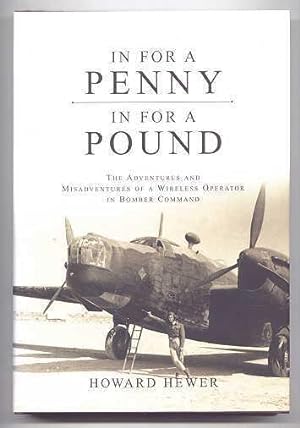hewer howard foreword group captain (1 résultats)
CommentairesFiltres de recherche
Type d'article
- Tous les types de produits
- Livres (1)
- Magazines & Périodiques (Aucun autre résultat ne correspond à ces critères)
- Bandes dessinées (Aucun autre résultat ne correspond à ces critères)
- Partitions de musique (Aucun autre résultat ne correspond à ces critères)
- Art, Affiches et Gravures (Aucun autre résultat ne correspond à ces critères)
- Photographies (Aucun autre résultat ne correspond à ces critères)
- Cartes (Aucun autre résultat ne correspond à ces critères)
- Manuscrits & Papiers anciens (Aucun autre résultat ne correspond à ces critères)
Etat
- Tous
- Neuf (Aucun autre résultat ne correspond à ces critères)
- Ancien ou d'occasion (1)
Reliure
- Toutes
- Couverture rigide (1)
- Couverture souple (Aucun autre résultat ne correspond à ces critères)
Particularités
- Ed. originale (Aucun autre résultat ne correspond à ces critères)
- Signé (Aucun autre résultat ne correspond à ces critères)
- Jaquette (1)
- Avec images (1)
- Sans impressions à la demande (1)
Livraison gratuite
- Livraison gratuite à destination de France (Aucun autre résultat ne correspond à ces critères)
Evaluation du vendeur
-
IN FOR A PENNY, IN FOR A POUND: THE ADVENTURES AND MISADVENTURE OF A WIRELESS OPERATOR IN BOMBER COMMAND.
Edité par Stoddart, Toronto, 2000
ISBN 10 : 077373273X ISBN 13 : 9780773732735
Vendeur : Capricorn Books, Oakville, ON, Canada
Hard Cover. Etat : Near Fine. Etat de la jaquette : Near Fine. 272 pp, large 8vo (9 5/16" H). B&w photographs, maps. "In 1940, 19-year-old Howard Hewer dreamed of being the next Billy Bishop, of piloting Spitfires or Hurricanes over Europe. His dream was shattered when he was selected instead for a career as a wireless operator. But his thirst for adventure would certainly be satisfied. He was not to be a pilot, but he would play a vital role in air operations in World War II over Europe and the Mediterranean. Hewer's life in Bomber Command was never dull, and almost always bittersweet. During training, he fell out of a Fairey Battle, and held on by only one foot high over Lake Erie. In London, he survived a run-in with the infamous 'Piccadilly Commandos', then dug for victims of an air raid in the rubble of a dance hall. But Hewer found life in the belly of Wellington, or 'Wimpy', bombers the most hazardous of all. He and his crew of 218 and 148 Squadrons flew important night operations over Germany and North Africa, dropping their deadly payloads while dodging enemy flak. All the while, Hewer was busy at the radio controls identifying his Wimpy's position and detecting false codes from Axis operators, who were always on the prowl to lure unsuspecting Allied bombers into landing on enemy airfields. On perhaps his bravest mission of the war, as a driver for the RAF in North Africa, Hewer drove deep behind enemy lines, where he exchanged fire with Italian troops. Another time, in Suez, he became bored while on medical leave, and joined on as a wireless operator on another operation. Soon after takeoff, the plane took flak and crash landed on the desert floor. Hewer was trapped, his legs crushed against his radio, the engines of the plane threatening to explode. At times comical, at others tragic, Howard Hewer's stirring story will leave a lasting imprint on the memory of its readers." Dust jacket has minor rubbing.


